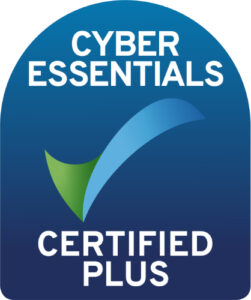Thinc insights
Discover the uses, benefits, and common applications of Microsoft Dynamics 365.
It’s recognised as one of the leading sets of business applications in the world – but what is Microsoft Dynamics 365 used for? It’s most commonly known for its Enterprise Resource Planning (ERP) and Client Relationship Management (CRM) capabilities, two areas in which it excels.
This blog will explore why this is the case, what the benefits of Microsoft Dynamics 365 are for a business and its users, and its most common uses in a bit more detail.
Before we have a look at what Microsoft Dynamics 365 is used for in businesses across the globe, let’s have a look at the solution in more detail.
Microsoft Dynamics 365 is a software suite of cloud-based business applications and tools that help businesses manage and optimise their operations. A core benefit is its seamless integration with other Microsoft applications, such as Azure and Microsoft 365.
Microsoft Dynamics 365 is built with AI-powered highlights, cloud-based accessibility and scalability, and facilitates low-code development. With its portfolio of applications, it allows users to build a holistic solution that serves their needs. There are specific applications built for a variety of business units, such as finance, operations, HR and sales.
All of these ‘365’ Microsoft products can get confusing, we know. But Microsoft 365 differs slightly from its Dynamics counterpart – think of it as the suite of tools your workplace relies on every day. It features specific built-in Microsoft applications such as Word, Excel, PowerPoint, Teams, OneDrive and SharePoint. Microsoft 365’s tools focus much on collaboration, enabling stronger communication and productivity across a business.
Dynamics 365 on the other hand includes applications that are much more specific to ERP, CRM, sales, customer service, finance, supply chain management and marketing. It’s built with the specifics of business processes, customer engagement and operational efficiency in mind.
Microsoft 365 is suitable for businesses of all sizes, including just individual users – simply to facilitate everyday tasks through better tools for collaboration.
Microsoft 365 can be integrated with Dynamics 365, with both working in tangent to maximise productivity, collaboration and communication, all while having the same infrastructure.
Now that we’ve looked at how it differs from Microsoft 365, let’s revisit the question; what is Dynamics 365 used for? The most common uses of Dynamics 365 are for ERP and CRM deployment, all due to the tools within it being developed with business processes and customer interactions in mind. Tools are built to give you everything that you need to ensure that different business units have all the information to hand, at all times, to maximise the customer experience.
Dynamics 365 as an ERP offers compelling reasons for businesses of all sizes to adopt. Firstly, it has incredibly strong integration capabilities. As an ERP, it can draw upon integration with finance, supply chain, manufacturing, HR and much more, along with integration to Microsoft 365 and other solutions from the suite. A common part of Dynamics 365 as an ERP solution is Microsoft Dynamics 365 Business Central, which is ideal for SMEs due to its balance of flexibility, cost-efficiency and scalability. It’s a solid choice for businesses that are growing. It’s a scalable platform that can grow as you grow, with additional modules added or redacted to match what the business needs. With it being highly customisable and flexible in its setup, dashboards, workflows and automations can all be designed to maximise output.
Its real-time data and insights across multiple departments equips teams and business leaders to make more accurate decisions and improve strategic planning.
To summarise the benefits of Dynamics 365, its applications allow businesses to streamline operations, stay close to customers and drive scalability. Let’s break down the core benefits:
Microsoft Dynamics 365 is great for businesses of all sizes, firms already in the Microsoft ecosystem and any business that needs to centralise data.
Business owners can enjoy peace of mind with a strong platform that’s capable of managing complex supply chain and manufacturing components, across sectors such as chemicals, manufacturing and warehousing and distribution. This is due to its inventory, procurement and production optimisation, but it’s a solution that can serve a vast variety of sectors.
If you feel like your business is expanding and wish to have a flexible solution that can expand as you do, Microsoft Dynamics 365 is a really strong candidate.
Making a decision on which IT solutions are right for your business can prove to be complicated. There are so many options out there with solutions having similar features and benefits – at least on paper.
At Thinc, we pride ourselves on providing information about what solution is the right fit for your business. As Microsoft partners offering Dynamics 365 BC, we’re here to offer industry-specific knowledge and tailored solutions to match your business needs.
Related Topics
Looking to scale your business?


Enter your details into the contact form below, and one of our experts will be in touch to arrange a time to speak.
If you’re an existing customer looking for support, please e-mail servicedesk@wearethinc.com, or visit our support page where you can download our remote support apps.